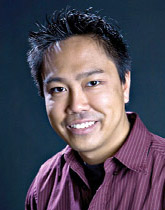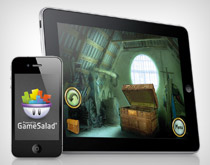
Not long after his alarm goes off at 3:30 am, 14-year-old Michael Agustin trudges through the dark halls of his family’s home with a familiar bleary-eyed walk. Outside, the dustbowl of southeastern Texas is still. Agustin has arisen before plant workers at the nearby oil refineries to till his own fields—ones filled with numbers, not crude oil. He plops down in his chair, pushes aside boxes of floppy discs, and boots up the family computer, a monolithic heap called Quantex PC. It blips and blops before spitting out a blue-green sunrise. Welcome to Windows 95.
There is no time to waste before swim practice. Amid the clacking of plastic keys, waves of computer code ebb and flow, cascading down the blue tides of the monitor. It seems like a cruel chore—accounting work, maybe. But Agustin beats the sun out of bed for good reason. With a heavy C++ textbook on his lap, he is telling a story. “As a kid, I really wanted to make movies,” he explains. “Instead of actors, I used computer characters.”
Using the modem he discovered when he took apart the family computer to upgrade, he strings a telephone cord across the room and cruises the world’s first social media network: pre-Web terminals called Bulletin Boards. Here, he connects with other guerilla game designers from across the world who freely pass on source code and know-how. With their help, he frantically scrawls down digital hieroglyphics of letters and symbols.
Hours later, as the first rays of light fill the room, the streaming waves of code have shaped into something recognizable. Agustin has made a pixilated hero who can walk and talk. The character carries a sword like the hero of Final Fantasy II, the epic role-playing game that inspired Agustin to first grab a screwdriver and find out what was inside the computer. There is no soundtrack to accompany his hero’s journey, and the forest ends after a while, leaving him wandering aimlessly in a black hole of empty code.
Real life beckons: swim practice. But as Quantex powers down, Agustin’s heart surges. Like the Texan oil workers just putting on their work boots, Agustin, too, has been doing some refining.

He’s still raw. He doesn’t yet realize that he’ll skip a family vacation to Disney World next year because of his passion or that it will one day take him from sleepy Port Neches, Texas, to Carnegie Mellon’s Entertainment Technology Center in Australia, where he’ll earn his degree in 2007, the same year he’ll help create software called GameSalad—which lets anyone create iPhone games without any programming knowledge. More than 250,000 people have already downloaded GameSalad, and the company recently raised $6 million in second-round funding.
All of that is still to come. For now, the 14-year-old boy will have to wait another day to till the fields of his epic adventure. He unhooks the telephone cord from the modem. His mother will be up soon, and she’ll need to use the phone.



